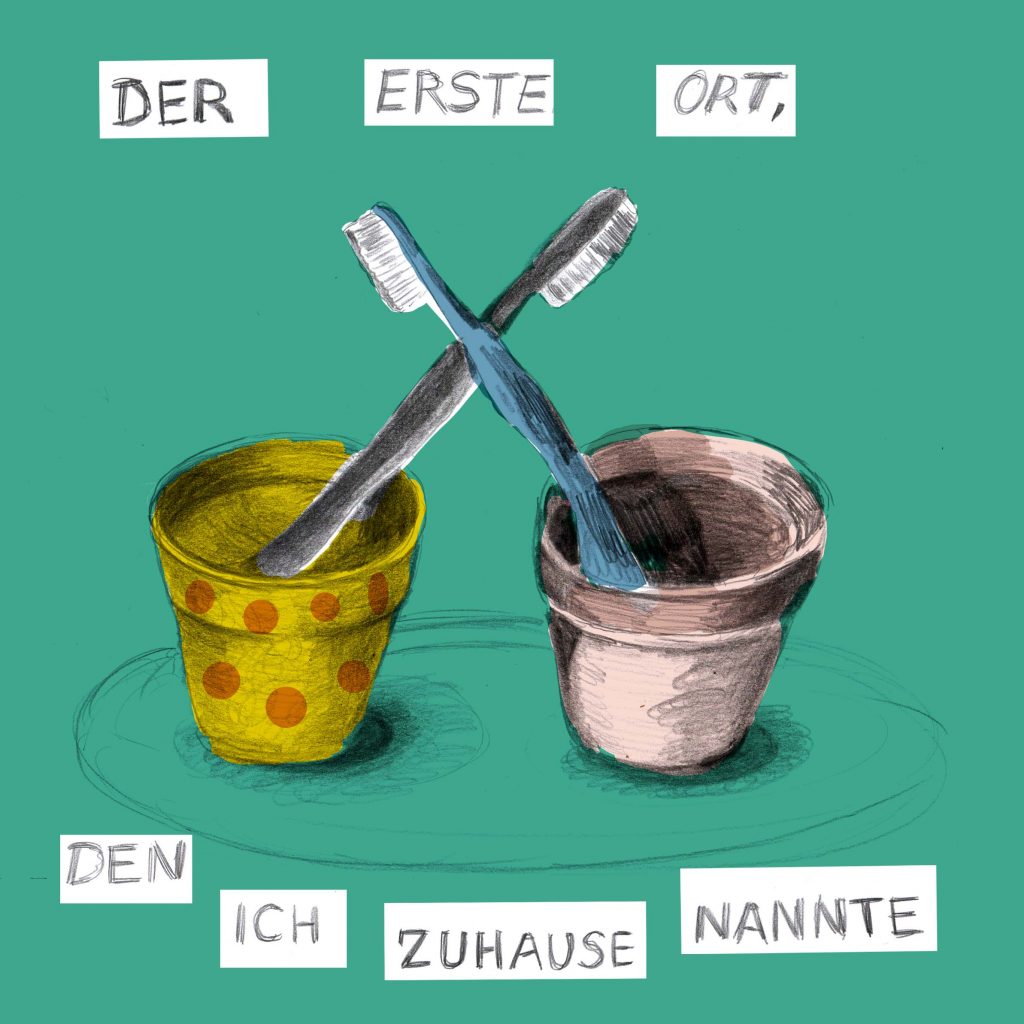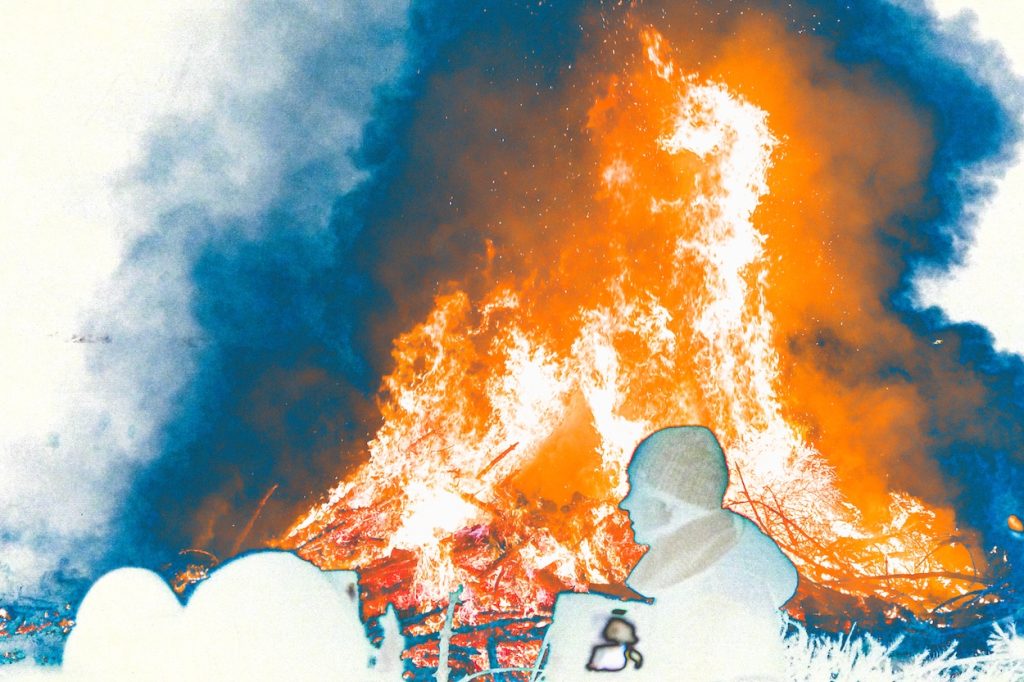The first place I called home
by Natascha

The first place I called home is a two floor house in Sombor, Serbia. It’s my dad’s hometown. The house has these old doubled windows with white frames. There is a big gate in front of it with Cyrillic letters on it, I never really knew what these mean. To go back to the first place I called home, we have to go back to the year 2014.
My family is sitting in the car, on the way to Serbia. As soon as we enter the city, I recognize everything. The city looks just like every year, it hasn‘t changed a bit. Coming closer, I can see the house. My family leaves the car and I see my grandparents waiting for us. It smells like summer. I smell wet grass, gasoline from all the motorcycles, barbecues, the farms nearby. I can hear children laughing, dogs barking and crickets chirping.
As I enter the door into the house, everything still looks the same. The place where my Grandpa is sitting every morning to read the newspaper, the door to the cellar is open as always and my drawings still hang. It smells like freshly cooked food, sausages and cheese.
The thing I am most excited about is upstairs in the room I share with my brother. As I ran upstairs, to check if my grandma left a pajama set on the bed, like she does every year, I can‘t find it. Standing in this big room, with no pajamas, made me realize that she is not here.
It doesn‘t smell like cooked food, sausages and cheese. They were never waiting for us. It‘s just my grandpa.
I go down to the living room, only to see my dad and grandpa crying. Nothing has changed but at the same time everything did. All the lipsticks still stand on her desk, waiting to be used again. The toothbrush is still in the container, the bed is made, and the clothes are folded. It looks like every other year.
The sewing machine is all dusty, the shed is full, and the couches still have the same cover on them. I feel like I can smell her perfume, hear her laughing and see us dancing. As the family eats together, no one talks and the food doesnt taste the same, even though it is the same.
I go back into my room, in this big house, reading a book and wonder if the family can enjoy this vacation. While I fall asleep, listening to the sound of the crickets, I realize, this house has so much meaning to me. It keeps her alive and me too.
That is the first place I call home. I haven‘t been there since.
- Kein Platz für die AfD an der h_da?Die Linke Liste F.I.S.H. fordert klare Haltung gegen Rechtsextremismus. Die Gruppe will, dass sich das Studierendenparlament (StuPa) offiziell von der Partei AfD distanziert und erklärt: AfD und Studierendenvertretung, das passt nicht zusammen!
- S(pr)ay it loudGraue Wände werden zu Kunst, während bei nächtlichen Streifzügen das Adrenalin kickt. Graffiti ist für viele Sprayer*innen gelebte Subkultur, in der sich FLINTA* langsam aber sicher ihren rechtmäßigen Platz erkämpfen.
- Wie viel Schwammstadt steckt in Darmstadt?Wer in die Einsteinstraße im Darmstädter Stadtteil Bessungen einbiegt, fühlt sich wie in die Zukunft versetzt. Es ist wie eine Vision vom perfekten und nachhaltigen Wohnen. Sieht so eine verantwortungsvolle Politik aus? Wie positioniert sich Darmstadt im Kampf gegen den Klimawandel? Und welche Rolle spielt dabei das Konzept von Schwammstädten?



